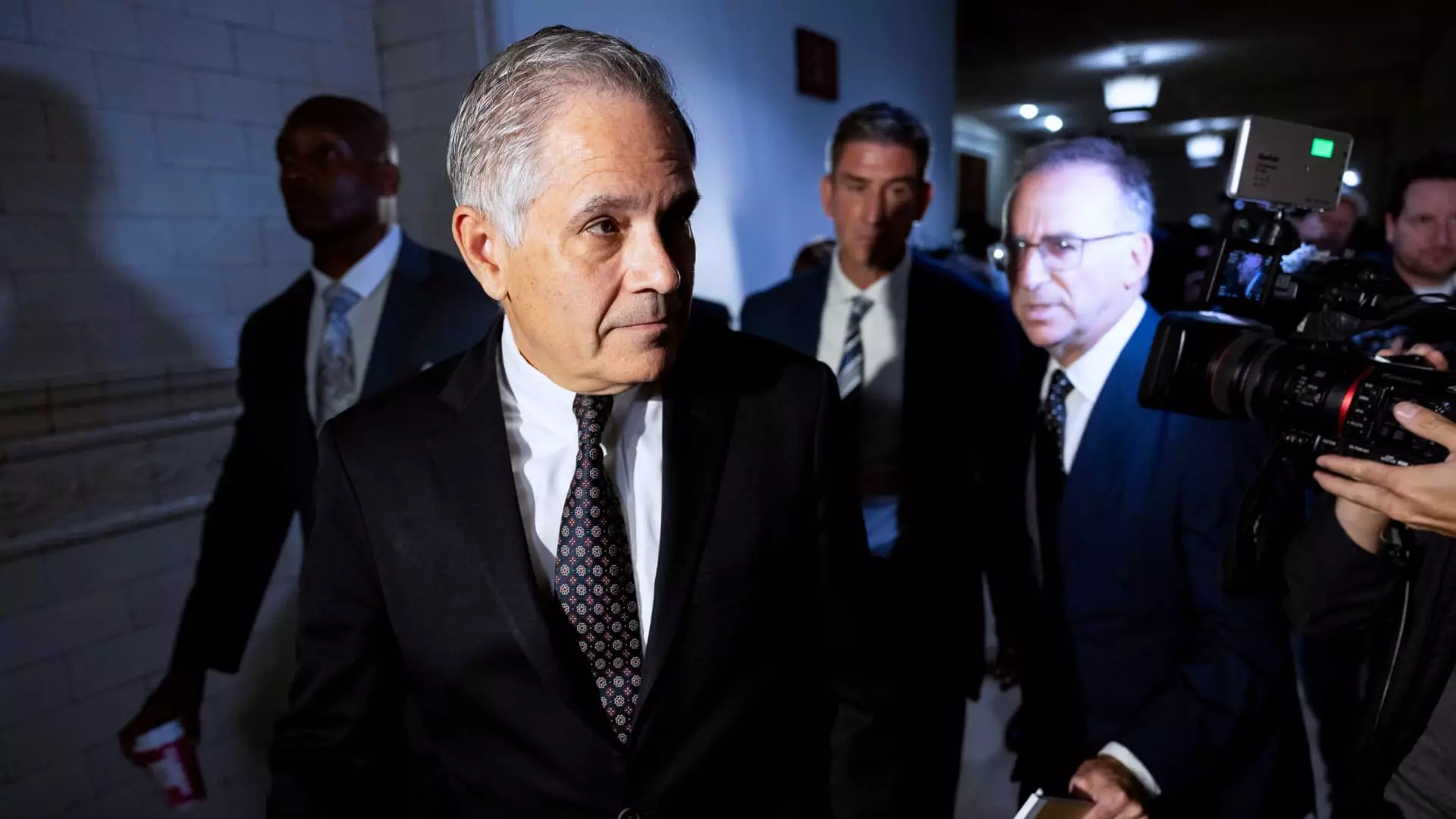The ongoing legal saga surrounding Elon Musk and his America PAC has drawn significant attention, particularly in the lead-up to the presidential election. Philadelphia District Attorney Larry Krasner has accused the billionaire entrepreneur of orchestrating an illegal lottery targeting registered voters in Pennsylvania and other swing states by offering a $1 million prize. During a recent court hearing, Krasner asserted that Musk and his PAC possess “guilty knowledge” regarding the illegitimate nature of their promotional scheme, which not only breaches lottery laws but also contravenes consumer protection statutes in Pennsylvania. This accusation amplifies the scrutiny surrounding electoral integrity and the ethical implications of utilizing large financial incentives in political campaigns.
This legal battle exemplifies a poignant clash between the ideals of political freedom and the strictures of the law. Krasner has been unyielding in his stance, emphasizing that there is no protective scope under the First Amendment for engaging in illegal activities, including lotteries framed as giveaways. His characterization of the giveaway as a “scam” and “grift” underscores his commitment to enforcing election integrity and protecting voters from what he deems a manipulative tactic. Krasner’s position raises essential questions about the extent to which financial incentives can influence voter behavior and whether such practices should be legally sanctioned.
Conversely, representatives from America PAC contest these claims, asserting that their promotional strategy does not constitute a lottery because they argue there is no genuine prize to be won; instead, they claim to be entering contractual relationships with participants acting as spokespeople for the PAC. The testimony of Chris Gober, the PAC’s former treasurer, introduced a counter-narrative, suggesting that the legality of the initiative hinges upon the interpretation of “randomness” in the selection of winners. Gober’s assertion that the words “random” and “by chance” are interchangeable, although seemingly flimsy, illustrates the different legal interpretations that can arise from the same wording.
The courtroom exchanges have not only shone a light on the specific allegations but have also highlighted the complexities of campaign financing and electoral laws. Krasner’s inquiry into the perceived discrepancies in the PAC’s stated methods for selecting winners brought forth crucial issues regarding transparency and accountability in political fundraising activities. The assertion that recipients are supposed to be randomly selected but may instead be pre-determined raises alarms over the authenticity of the selection process. It invites further scrutiny into how such promotional efforts could distort the democratic process, particularly when large amounts of money are involved.
Krasner’s testimony, citing an ongoing criminal investigation into the nature of the giveaway, adds another layer of intrigue. The DA’s experience in court adds weight to his assessments, and his claims of “disingenuousness” from Gober suggest a potential unraveling of the PAC’s defenses. The prosecution’s argument that Gober’s testimony is an admission of liability signifies the potential for a pivotal turn in the case, which may resonate beyond Pennsylvania, possibly setting benchmarks for electoral campaign regulations.
As the trial progresses, the implications of this case may reverberate throughout the political landscape. The endeavor by Musk’s America PAC raises fundamental questions about the role of wealth in shaping electoral outcomes and the responsibilities of PACs engaging in such contentious practices. If found liable, the repercussions could usher in heightened scrutiny of campaign practices, thereby reshaping how political movements operate financially, particularly in the realm of voter mobilization and engagement initiatives.
Moreover, this contentious scenario underscores the importance of ensuring that electoral processes remain untainted by financial manipulation, incrementing the role of law in safeguarding democratic values. If Krasner’s stance prevails, it could prompt a re-evaluation of similar promotional strategies being employed by candidates and their supporters, ensuring a more equitable electoral environment moving forward.
The Musk lottery controversy encapsulates a critical moment in the intersection of law and politics, raising ethical dilemmas that extend well beyond Pennsylvania’s borders, challenging how political activity takes shape in contemporary society. The examining court’s findings will not only impact the involved parties but may also resonate across future electoral campaigns.


Leave a Reply